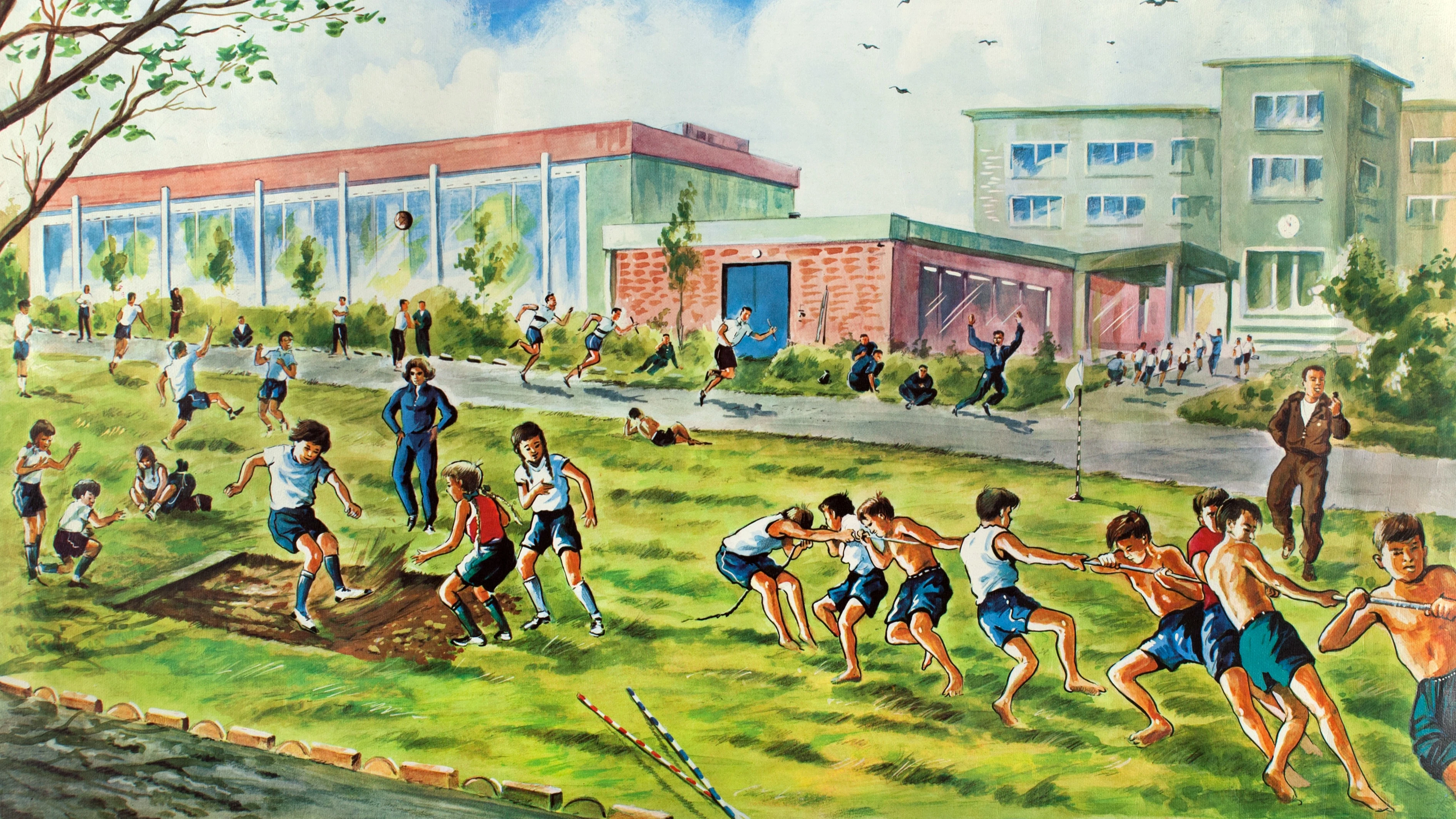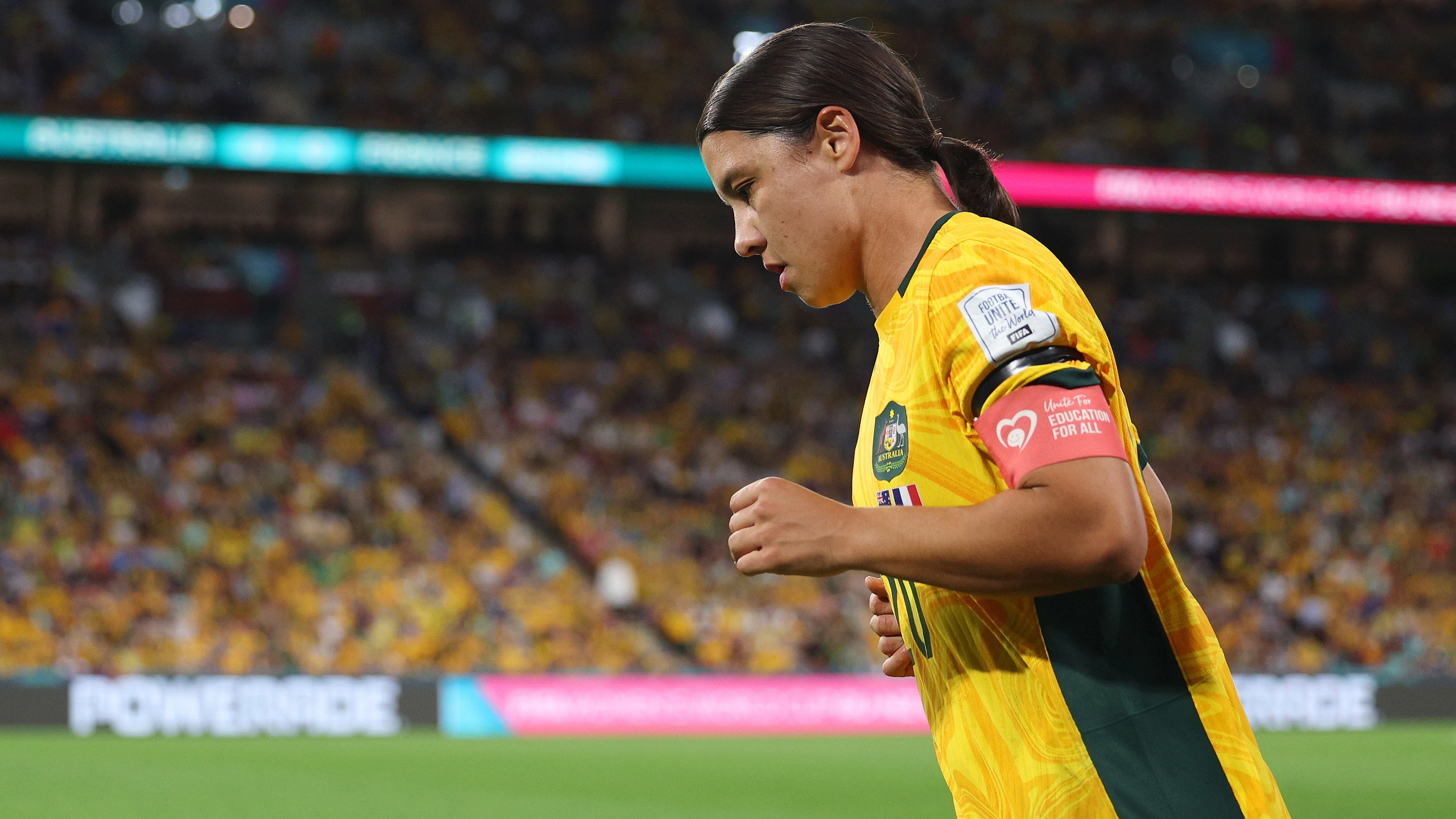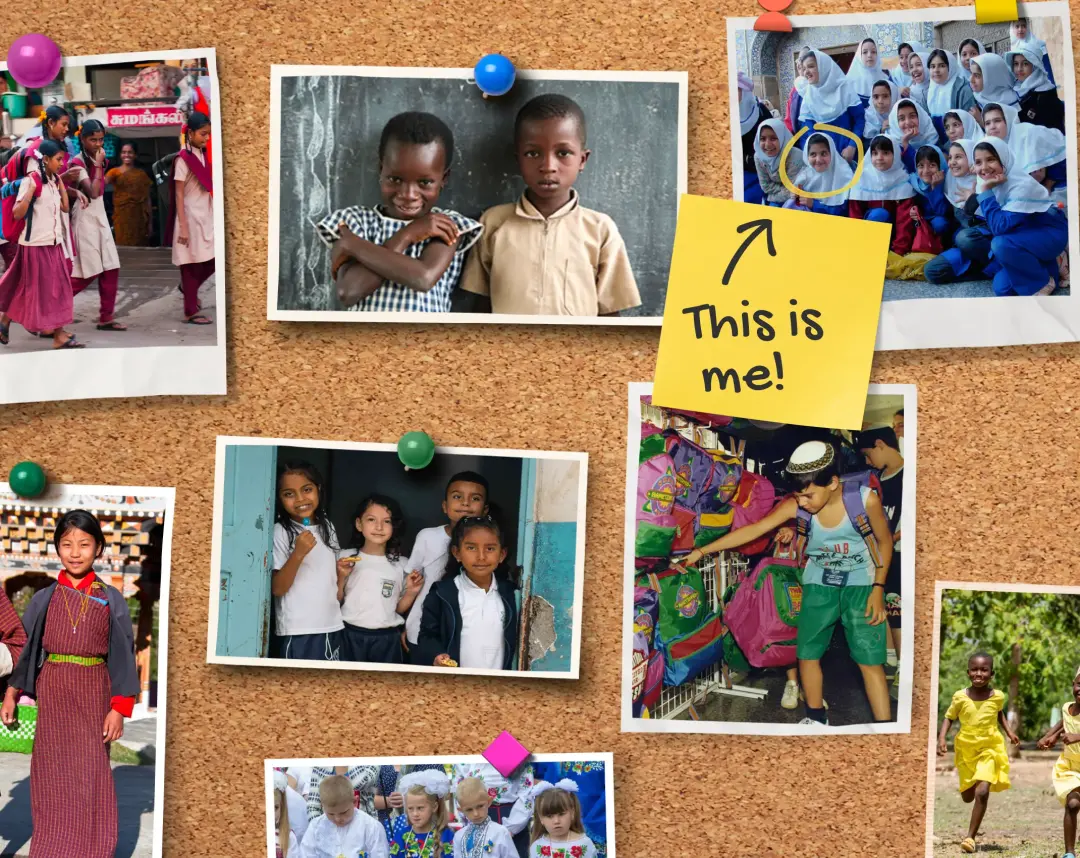School sports: rising champions
What do math, history and physical education have in common? They're all taught at school! But why? Physical education helps you keep your mind and body fit.
When you play and compete, you learn to treat others fairly and take responsibility for your actions. These aren’t just values for champions, they also make you a valuable member of society.
Sport playground school

Better together
These boys are holding up a sheet to use it as a wind sail. The wind blows against the sheet, giving the boys a big push to go faster (and backwards!). They’re working together and coordinating.
Skills like these will help you succeed in school and beyond. Can you think of times in your life when you need to be a team player?

Emotions run high
Playing sport is about pacing yourself: sometimes you throw hard, sometimes you go faster or slower for better control. The same goes for your mind.
When you play, emotions bubble up: you can feel joy, excitement, frustration and even anger. Sports coaches and teachers can help you learn how to manage these emotions and not let them overwhelm you.

Fair play, safe play
You can rely on your equipment to stay safe when the going gets rough. But rules are also there to protect you: they make sure that dangerous actions and behaviors are banned from the field or court.
Accidents can happen, but respecting the rules of a game together ensures that you and your friends can have fun and play safely.

Did
you
know
?

Games can teach you body control
For example, in the game “musical statues”, you have to stop moving when the music stops. This helps you learn to control how you move. It can also teach you to learn to stay calm and happy even if you don’t get to play every time. This might even help your learning in the classroom. Fotini Vasilopoulos, researcher

When we play, we learn how to treat everyone fairly and include everyone in the game like these kids. So the next time you see someone being left out, you can use what you learned to stand up for them. These kids are certainly having a lot more fun taking turns!

Sports help us to be active and healthy, which makes us feel better. And when we feel good, we’re less likely to be mean or bully. Exercise doesn't just make our bodies stronger, it makes our hearts kinder.
Why do I change for PE?
One of the unique things about gym class is that, unlike most other school activities, it requires you to wear special clothes and shoes. Have you ever wondered why? Wearing sports clothes for PE has its advantages, but do you think it’s necessary?
Comfort: PE involves lots of running, jumping and action. You need to be comfortable and free to move around. Leggings, shorts, T-shirts and trainers are probably some of your favorite things to run in!
Hygiene: After all that running, sweating and rolling around on the ground, your clothes will be dirty and you’ll probably want to change.
Safety: Certain clothing also protects you from the bumps and bruises that can happen when you play sports. It helps you take safe risks when you play.
Team Spirit: When everyone wears the same colors or sports kit, it creates a sense of unity and teamwork. It shows that you all belong to the same team!
Smart fabrics for smart athletes

Sportswear everywhere!
You may not know it, but you probably wear sportswear even outside of the soccer pitch or the gym! We often forget, but shorts, polo shirts and T-shirts, sneakers, sweatshirts, puffer jackets – they all have a sports origin. Do you wear any of them?

Speed and style
Athletes needed lightweight shoes that wouldn’t slip, and now many people wear them every day. They are well suited to the active days of kids because they are comfortable and easy to move in.

Sweat chic
The very word “sweatshirt” gives away its origins: it was used to keep the body warm after exercise, so you didn’t catch a cold when you were wet with perspiration!
Sports in the school of life

Clothes say a lot about us, like which team we support or where we come from. Armbands can show that footballers and fans are united in a cause. The one worn here by footballer Sam Kerr was given out during the 2022 World Cup and shows support for children’s right to an education. What causes can you imagine supporting with an armband?
Want to know more?
Bibliography
History
Edelman, R., Wilson, W. (2017). The Oxford Handbook of Sports History. Oxford University Press.
Spears, B.M., Swanson, R.A. (1995). History of Sport and Physical Education in the United States. McGraw-Hill Book Company.
Diversity, equity, and inclusion (DEI) and sport
Bates, K. (2020, November 20). How can after-school clubs improve children’s mental health? BOLD. How can after-school clubs improve children's mental health? - Child Wellbeing (bold.expert)
Dashper, K., Fletcher, T. (2014). Sport in the Global Society - Contemporary Perspectives: Diversity, Equity and Inclusion in Sport and Leisure. Taylor & Francis.
Fehr, E., Bernhard, H., Rockenbach, B. (2008). Egalitarianism in young children. Nature, 454 (7208), 1079-1083. https://doi.org/10.1038/nature07155
Tomasello, M., Fetz Fernandes, G. (2016, August 5). Some basic notions of fairness are culturally constructed. BOLD. “Some basic notions of fairness are culturally constructed” – BOLD
Sport and Youth Development
Alonso, N. (host), Majmudar, S., Sheckley, T., Vasilopoulos, F., (2024, April 16). “Why physical activity in schools helps children thrive” [Audio podcast episode]. In Teachers’ Voices, Season 3 Episode 11. BOLD. Why physical activity in schools helps children thrive – BOLD
De Bruijn, A., (2018, January 22). “How physical activity can boost academic performance in primary school”. BOLD. How physical activity can boost academic performance in primary school – BOLD
Duell, N. (2019, August 29). “The positive side of risk-taking”. BOLD. The positive side of risk-taking in adolescence (bold.expert)
Lau, J., Bates, K. (2023, November 2). “Building youth resilience”. BOLD. Building youth resilience – BOLD
Oberer, N. (2018, July 4). “The role of physical fitness in school readiness and academic achievement. BOLD. The role of physical fitness in kids' academic achievement (bold.expert)
Vasilopoulos, F. (2022, January 13). “How does physical activity benefit classroom learning?” BOLD. How does physical activity benefit classroom learning? – BOLD
Learning objectives
Based on Curriculum 21, German-speaking Switzerland, 2024.
The students …
TTG.2.B.1 for 9+
1 c) Identify the purpose and make-up of games and sports equipment and use as a basis for developing their own game or play ideas (e.g. kites, technical toys, playground design).
2 b) Think about the functionality of clothes, modify them playfully and dress up (e.g. jewelry, protective gear).
NMG.10.1 for 9+
2 d) Suggest and implement community-building activities in the classroom and take shared responsibility for the well-being of all (e.g. order in the classroom, respectful interaction with one another).
2 e) Use different strategies (e.g. mediation, voting, consensus) to resolve conflicts in the group in a fair way.
BS.4.B.1 for 9+
5 d) Respect teammates and opponents, sometimes playing without a referee.
























